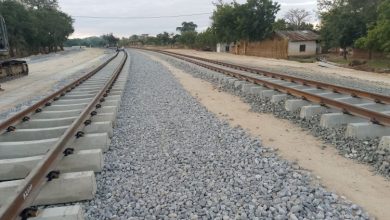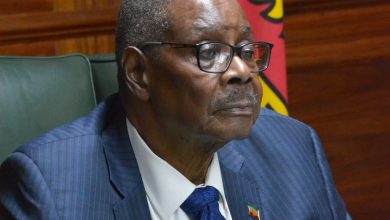Agriculture shapes 2025 campaign, doubts remain
Agriculture is once again at the heart of Malawi’s political battleground.
As the 2025 elections approach, the five main political parties are pitching ambitious reforms: revamped subsidies, mega farms, irrigation schemes, diversification into high-value crops and agro-processing for exports. Each claims its blueprint will end chronic food insecurity and drive rural prosperity.

The Democratic Progressive Party (DPP) promises a “Green Revolution” anchored on irrigation, mechanisation and industrial farms. The Malawi Congress Party (MCP) is rolling out the “Make Malawi Feed Malawi” campaign backed by mega farms. The People’s Party (PP) proposes anchor farms, agro-processing and cooperatives. The United Democratic Front (UDF) is banking on avocados, macadamia and cashew nuts tied to regional trade. The UTM Party pledges a corruption-free subsidy programme and stronger farmer-friendly markets.
But these pledges come against a sobering reality. Government has allocated K131.6 billion to the Affordable Inputs Programme (AIP) in 2025/26 financial year, slightly down from K161 billion last year, but still higher than the K110 billion committed in 2023/24 fiscal year.
Despite these billions, productivity remains stubbornly low. Hunger is rising and the Famine Early Warning Systems Network (FewsNet) projects that up to five million Malawians will require food assistance between January and March 2025, mostly in the Southern Region.
Against this paradox, experts warn that delivery, not vision, will determine whether manifestos become solutions or empty rhetoric.
Subsidies: Clarity, cost and credibility
All parties want subsidies in some form. MCP pledges to continue AIP but reform it. DPP promises to revive the Farm Input Subsidy Programme (Fisp) for poor smallholders, complemented by a farm credit facility. PP proposes input loans and refined targeting. UTM Party talks of a corruption-free system.
For many farmers, these pledges offer reassurance. Yet experts are blunt: Malawi has a spending problem without results.
National Smallholder Farmers Association of Malawi chief executive officer Betty Chinyamunyamu says clarity is the starting point.
“When beneficiaries are not clearly defined, the programme is prone to abuse. Malawi needs a farmer database to ensure only qualifying farmers benefit.”
She argues that AIP must run on a three to five-year framework rather than shifting yearly.
“Frequent changes confuse farmers and deter private-sector investment,” she said.
Christone Nyondo, a research fellow at Mwapata Institute, warns that foreign exchange allocations and promises of cheaper fertiliser will achieve little without better targeting and timely delivery.
“It is one thing to pledge reforms, but another to achieve them. We need open frameworks that integrate the private sector,” he said.
Tamani Nkhono Mvula, an independent agricultural policy expert, believes politicisation has blunted impact. He proposes a tiered approach: the poorest supported under social protection, productive smallholders through subsidies, medium farmers with loans, and estates via commercial banks.
The bigger concern is cost. AIP consumes a huge share of the budget while yields remain low.
Economists warn that without parallel investments in soil health, irrigation and extension, subsidies are like “pouring water into a leaking bucket.”
Irrigation: Ambitious targets, weak delivery
Parties converge on irrigation as a silver bullet. MCP pledges to cut reliance on rain-fed farming from 90 to 60 percent within five years. DPP targets 147 000 hectares under irrigation by 2030. PP promises to revive the Greenbelt Initiative. UDF ties irrigation to agro-industrialisation corridors.
But history tempers expectations. The Greenbelt Initiative launched in 2009 promised one million hectares under irrigation, but remains largely stalled. The Shire Valley Transformation Project, backed by the World Bank, has yet to deliver at scale.
Nkhono Mvula is blunt: “We have been talking about these projects for years without reaping benefits. Parties must show how they will fix implementation, not just restate the targets.”
Some analysts suggest Malawi can learn from Zambia’s irrigation blocks or Kenya’s investment in solar-powered water pumps. Without a clear financing and governance model, big numbers in manifestos risk becoming empty pledges.
Mechanisation and commercialisation
DPP wants industrial farms and incentives for farm machinery. MCP bets on mega farms financed by Neef and Agriculture Commercialisation. PP proposes anchor farms and outgrower schemes. UDF ties mechanisation to export-oriented estates.
But experts question the role of government. “Government’s role is not to run farms, but to create an enabling environment, secure land tenure, rural roads, access to finance,” Nkhono Mvula said.
Chinyamunyamu warns that inputs alone cannot deliver results. “Fertiliser on degraded soils is money on sand,” she said, urging that subsidies be tied to soil health practices, manure use, and weather insurance.
Nyondo adds that productivity gaps must be closed: “Maize yields average one to two tonnes per hectare against a potential of five to eight.
Without bridging this gap, mechanisation and commercialisation will not translate into competitiveness.”
Cooperatives and market access
All parties agree farmers need better markets. MCP has pledged to recapitalise Admarc Limited with K3.3 trillion. DPP wants to revitalise commodity exchanges. PP highlights agriculture commodity exchange and warehouse receipts. UDF promises stronger links to regional markets.
For Chinyamunyamu, cooperatives are the game-changer.
“With storage, farmers can hold produce and sell when prices are right. Without Admarc Limited or National Food Reserve Agency buying early, maize ends up with private traders,who later sell at high prices that fuel inflation.”
She argues that Malawi’s Strategic Grain Reserves (SGRs) must consistently hold 40–60 percent of maize stocks to stabilise prices. Today, reserves are too thin to tame intra-season spikes, leaving food inflation unchecked.
Experts also point to the need for market discipline. Export bans, often imposed during shortages, discourage investment. Nyondo stresses that “policy consistency matters more than big promises.”
Diversification: Promise and pitfalls
Diversification is the new buzzword. UDF has placed high-value crops like avocado, macadamia and cashew nuts at the centre of its plan. PP stresses legumes, cotton and horticulture. DPP adds hemp, pulses and livestock. MCP links diversification to mega farms and food sovereignty.
Experts agree Malawi has the agro-ecological potential. Avocados thrive in Dedza, Ntchisi and the Shire Highlands; macadamia already supports estates in the south; legumes have long been part of the smallholder mix.
But barriers loom. Nyondo warns that seedlings for macadamia are unaffordable for smallholders. “Without inclusive models, diversification will mainly benefit estates,” he said.
Nkhono Mvula recalls that Malawi was once southern Africa’s top groundnut exporter in the 1980s but lost markets over aflatoxin contamination. “Unless we fix value chain bottlenecks, history will repeat itself,” he said.
Manufacturing and value addition
Parties also promise to move Malawi up the value chain. DPP wants agro-processing hubs and model industrial farms. MCP pledges rural processing plants for maize flour, cooking oil and pigeon peas. PP stresses agro-dealer networks and processing centres. UDF ties industrialisation to regional trade corridors.
Experts welcome the rhetoric but point to gaps. Malawi’s manufacturing remains shallow, dominated by raw commodity exports. “If value addition is real, it could generate forex and jobs. But that requires investment in energy, standards and logistics, not just rhetoric,” Nyondo said.
The bottom line
The manifestos outline bold visions: subsidy reforms, irrigation, mega farms, cooperatives, diversification and value addition. But experts converge on a sobering message: Malawi cannot afford another cycle of promises without delivery.
As Nkhono Mvula puts it: “These are all doable proposals, but they will remain on paper unless Malawi addresses bottlenecks in human resources, financing and collaboration.”





